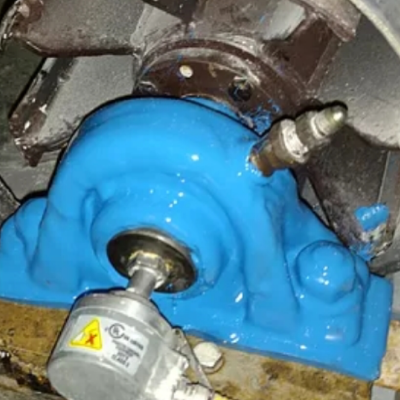Machine corrosion in the Philippine food processing industry threatens quality and efficiency. This blog highlights the importance of proper material selection, ongoing education, and effective prevention strategies to combat corrosion.
The food processing industry is a cornerstone of the Philippines's manufacturing sector, contributing to economic growth and employment. This vital industry faces a persistent challenge in the form of corrosion. Corrosion poses a significant threat, particularly in an industry where stringent quality standards are non-negotiable. To combat this issue, proper material selection and ongoing education are essential components of an effective corrosion prevention strategy. This blog post will offer valuable insights applicable to various industrial settings. According to Machinery Lubrication, we will discuss the importance of proper material selection, ongoing education, and effective prevention strategies to combat corrosion.
Importance of Material Selection
The choice of materials is paramount in the battle against machine corrosion within the food processing industry. Stainless steel, well-known for its corrosion resistance, is often preferred for various components in food processing facilities. It is estimated that the food processing industry in the Philippines bears a significant part of the annual direct cost of corrosion, which stands at a considerable amount. Maintenance departments must focus on corrosion prevention to combat this issue.
But, it's worth noting that machine corrosion prevention is an area often overlooked in standard educational programs. This knowledge gap can leave maintenance departments ill-equipped to deal with corrosion. One potential solution is to seek more training through specialized programs like the one we will explore in this case study.
Understanding Metal Materials and Corrosion
Metals with high potential energy are considered "active" and are more susceptible to corrosion, while metals with low potential energy are considered "passive." Understanding the Electromotive Force Series (EMF) allows for ranking metals by their relative energy potentials, an essential consideration when selecting materials for specific environments.
Materials like aluminum, iron, steel, chromium, and titanium in the food processing industry form protective oxide films in oxidizing conditions, increasing their resistance to corrosion. Because of its capacity to generate a passive coating that inhibits more oxidation, stainless steel, in particular, has intrinsic corrosion resistance. This passive film is created when oxygen combines with chromium in stainless steel to form a protective oxide or ceramic coating.
Preventing Corrosion Through Coatings
Another effective strategy for preventing machine corrosion in food processing is corrosion-resistant coating materials. Coating protection is essential in situations where steel is used to extend the material's life expectancy. Metallic coatings alter the surface properties of materials, creating a durable, corrosion-resistant layer. The most used method for corrosion protection in the Philippines, as elsewhere, is galvanizing, which involves applying metallic zinc to carbon steel through a hot-dip process.
 Enviropeel Corrosion Protection Solution
Enviropeel Corrosion Protection Solution
More polymer coatings like PVC can be applied to galvanized steel for enhanced protection in more severe corrosion conditions. Proper surface preparation and a robust quality assurance program are crucial to ensure the effectiveness of these coatings in the food processing industry.
Building a Corrosion-Resistant Future
In the Philippines food processing industry, as in any manufacturing sector, the battle against corrosion is paramount for ensuring product quality, safety, and longevity. Proper material selection, ongoing training, and corrosion prevention strategies are essential to ensure the preservation of products and the bottom line.
To further bolster your efforts in combating corrosion and enhancing the longevity of your equipment and components, consider exploring the capabilities of Le Price International's Thermoplastic Systems. This innovative solution provides a tough, impermeable thermoplastic barrier coating, preventing dust, water, and other contaminants from ingress into static and rotating systems, such as bearings. By implementing this cutting-edge technology, you can cut failure rates in stored assemblies and increase equipment lifetimes by an impressive 500%.
In the ever-evolving landscape of the food processing industry, knowledge and advanced solutions such as Thermoplastic Systems are the keys to overcoming corrosion challenges, ensuring product quality, and sustaining the industry's growth and success.
































